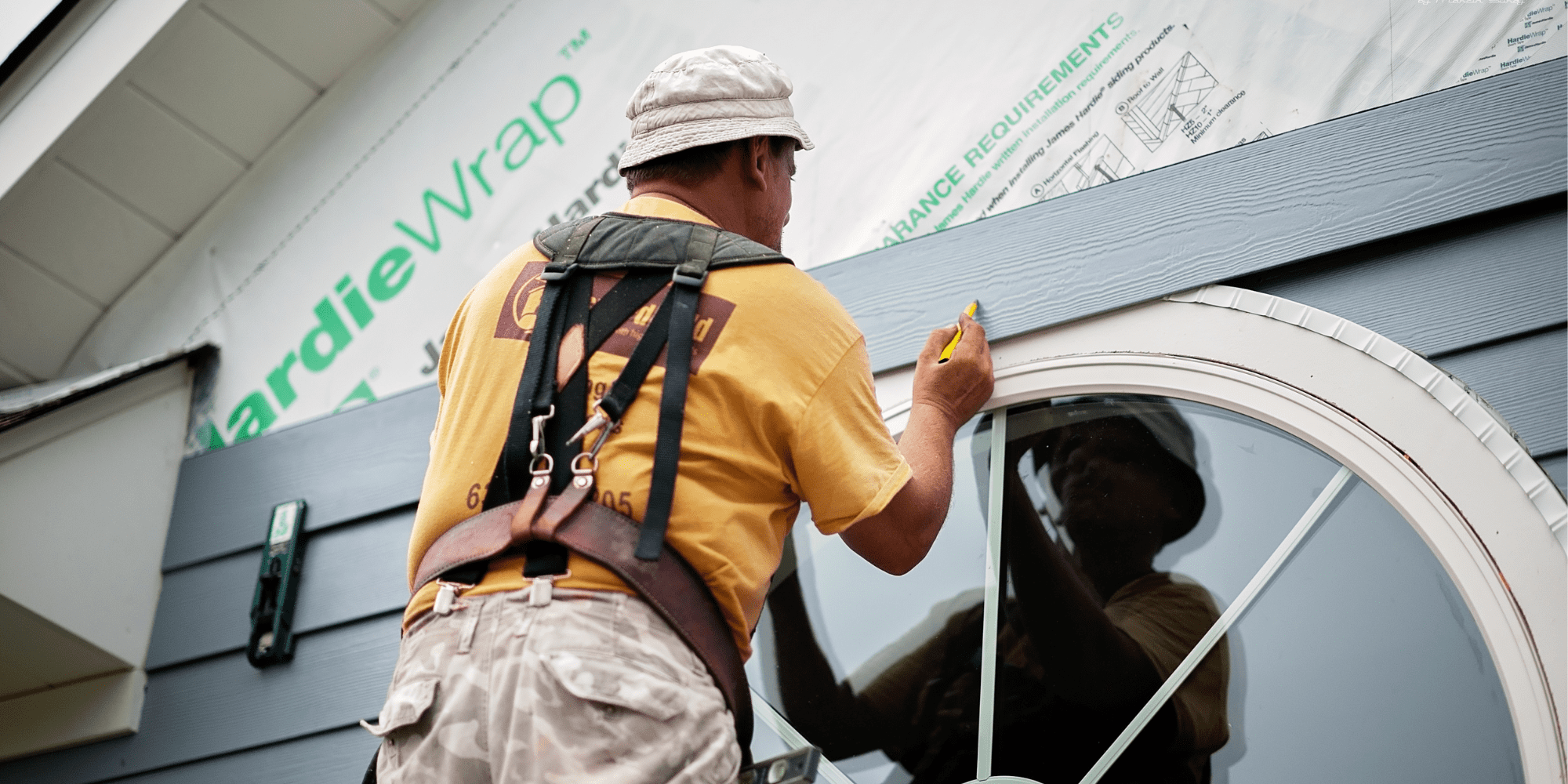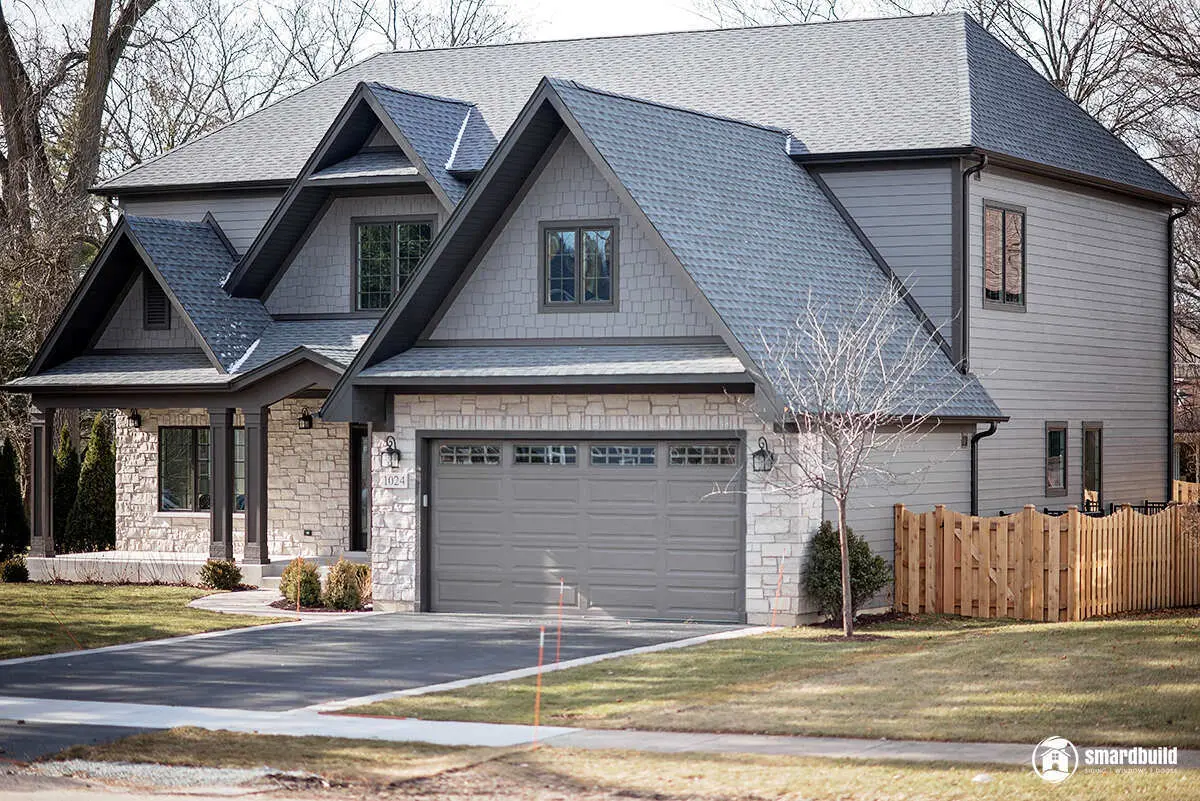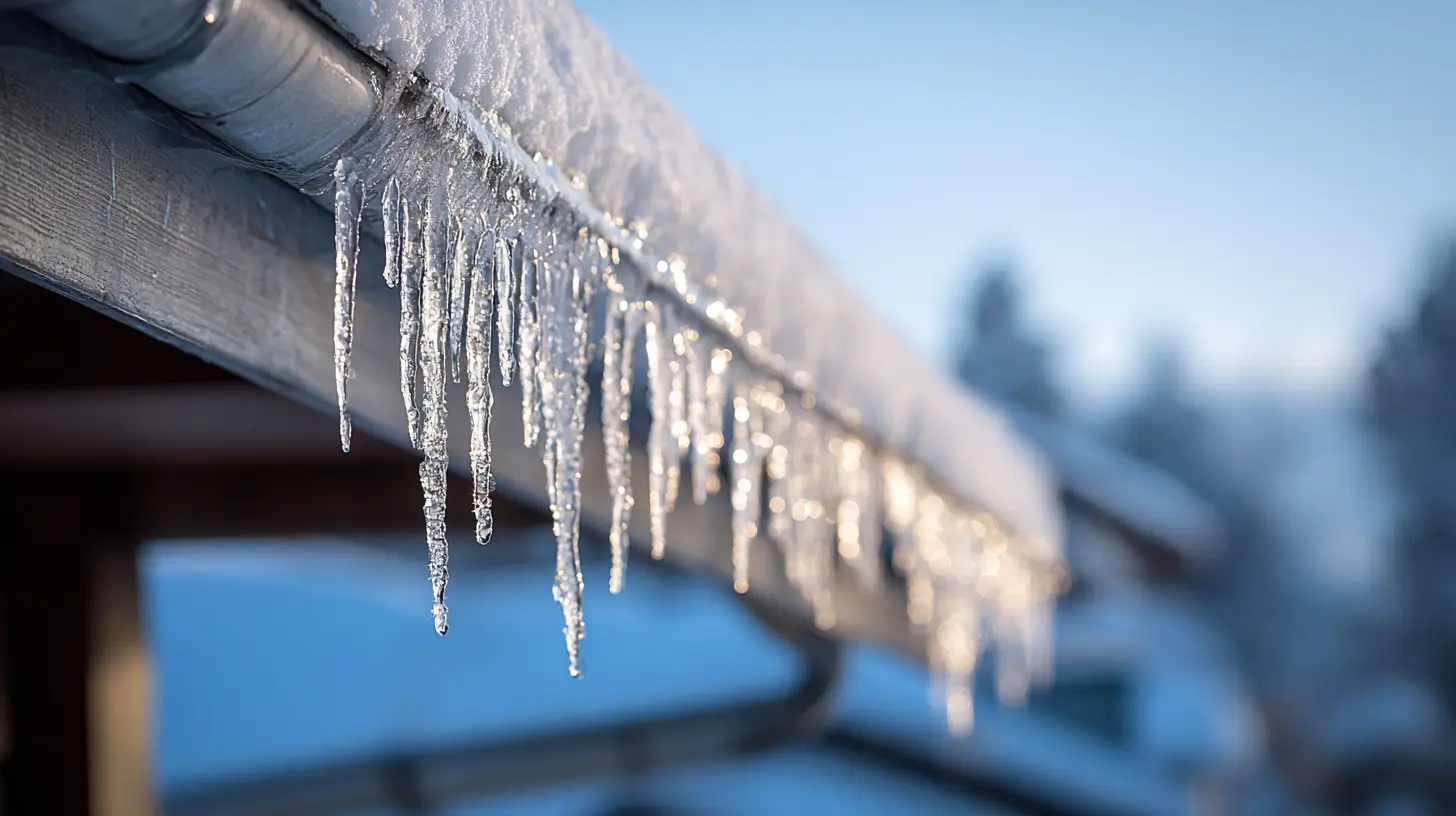Planning a siding project for your home? Understanding siding installation permits in Naperville is essential before you begin. The city's permit requirements protect homeowners, ensure safety compliance, and maintain neighborhood standards.
This comprehensive guide walks you through every aspect of the permit process—from application requirements and fees to timelines and common pitfalls.
Whether you're a DIY homeowner or working with siding contractors, knowing these regulations will save you time, money, and potential legal complications.
In Naperville, the installation of new or replacement siding requires an official permit from the city's building department. Permits must be obtained before starting work, as proceeding without approval can result in fines and mandatory removal of installed materials.

The permit process ensures that siding materials and installation methods meet fire resistance, structural integrity, and weatherproofing standards, thereby protecting your home and increasing its property value.
Different projects, such as replacing existing siding, adding insulation-backed siding, or altering wall structures, require different permits. An exception to the rule is when the homeowner is replacing vinyl, aluminum, or cement board siding that was damaged by storms.
Contractors must be licensed and familiar with permit requirements to ensure the work meets regulations. Having documented permits can be crucial for future sales, as they confirm that the work was done legitimately and up to code.
Consult with the Naperville Building Department early in the planning process to avoid costly mistakes, and hire licensed local contractors who understand the nuances of permits.
Naperville offers an online portal for submitting siding permit applications, enabling faster processing and status tracking. Applications must include precise details, including siding type, colors, installation technique, and dimensions.
When using a contractor, submit copies of valid licenses and insurance documents. The city charges fees based on the project scope that must accompany your application.
Typical review times range from 5 to 15 business days, depending on the completeness of the application and demand. Use the pre-application checklists provided by Naperville to ensure you submit all required information.
Upload high-quality photos and drawings to help permit reviewers understand your plan better, and double-check contractor credentials before submission to avoid delays.
Naperville permits vinyl, fiber cement, wood, and brick veneer, each with distinct code requirements for fire ratings, durability, and installation methods.
Homes in historic districts face more stringent requirements to preserve architectural integrity, often favoring traditional materials like wood or brick. The city reviews color selections to ensure harmony with the local streetscape, discouraging overly bright or nonconforming palettes.
Adding insulated siding or vapor barriers may require additional documentation showing energy code compliance. Less common materials, like aluminum siding, often require sample submission or supplemental technical approval before use.
Consult the city's design guidelines early to understand permissible materials and appearance standards, and request sample approvals for non-standard materials to save time during permit processing.
Applications require a complete permit form outlining project scope, detailed siding plans and material specifications, and contractor licenses and insurance proof when applicable.
Submit technical documents, such as product sheets, installation instructions, and insulation ratings, to demonstrate code compliance.
The city mandates rough-in and final inspections to check framing, moisture barriers, flashing, and finished installation integrity. Inspection requests must be scheduled at least 48 hours in advance.
Use document checklists provided by the city, maintain a permit folder with all correspondences, and schedule inspections early in the day to allow time for corrective action if necessary.
Naperville calculates permit fees using a fixed base rate plus incremental charges based on total siding area. Additional fees may apply for special inspections or expedited services.
Fees are non-refundable even if applications are withdrawn or denied, so thorough planning is essential.
Accepted payment methods include eChecks and credit cards. Payments must be made at application submission—unpaid applications face processing delays or rejection.
Obtain accurate measurements for fee estimates, check the city's current fee schedule online before applying, and use online payment portals as directed.
Initial permit review typically takes 5 to 15 business days, depending on application complexity and workload.
Permits are valid for 90 days from approval—you must begin installation within this period or reapply. Project completion must occur within 180 days of permit issuance to maintain compliance.
Submit applications early to account for review variations, and coordinate material delivery with permit timelines.
Schedule inspections immediately after work starts, and request extensions well before expiration if delays occur—early extension applications show good faith and increase approval chances.
Siding installations must conform to building codes governing structural integrity, weatherproofing, fire resistance, and material quality.
Zoning ordinances regulate appearance and placement, ensuring compliance with setbacks, height restrictions, and neighborhood guidelines. Energy-efficiency codes require minimum insulation levels and vapor barriers.
Compliance is verified through inspections and documentation reviews. Non-compliance can result in fines and necessitate costly corrective measures.
Consult Naperville's building and zoning codes online before planning, use professionals familiar with local codes, and incorporate energy-efficient materials early to meet evolving standards without expensive retrofits.
Homeowners are responsible for obtaining permits, though contractors may assist. The permit holder must ensure correct permits are secured and maintained on-site.
Contractors must be licensed and insured, with licensing guaranteeing professional standards and insurance protecting both parties.
Both parties must prepare for inspections—contractors should coordinate installation sequences to meet inspection checkpoints, while homeowners must provide site access and documentation.
Licensed professionals must ensure all work conforms to applicable codes and permits. Verify contractor credentials before starting, establish clear communication channels, and define roles in a written agreement to avoid conflicts.
Leading causes of denial include incomplete or incorrect documentation, such as missing signatures, insufficient project details, or absent contractor licenses.
Non-compliant materials or colors, failure to meet building or zoning codes, and unpaid or insufficient permit fees are frequent issues. Properties with unresolved past code violations face higher scrutiny and potential refusal.
Use pre-submission reviews to request informal feedback from the building department before formally applying.
Double-check all forms and attachments using provided checklists, address previous property code violations promptly, and respond quickly to city requests for additional information to keep applications moving forward.
Installing siding without proper permits presents significant legal and financial risks. The city enforces escalating fines for unpermitted work, which accumulate and may double if violations remain unresolved.
Beyond immediate penalties, unpermitted work can complicate future sales, insurance claims, and property improvements, making compliance essential for long-term property value protection.
Navigating siding installation permits in Naperville isn’t overwhelming when you understand the process.
By following proper procedures—submitting complete applications, using licensed contractors, and scheduling timely inspections—you'll ensure your project meets all city requirements.
Remember that permits protect your investment and provide peace of mind for future buyers. Start early, stay organized, and don't hesitate to consult with Naperville's building department for guidance throughout your siding project.
Ready for new siding? At SmardBuild, a company grounded in the principles of quality, dedication, and true craftsmanship, our goal is to provide unmatched customer satisfaction while making your vision a reality. Call today to schedule your free consultation.
Yes, most Illinois municipalities require permits for siding replacement, including Naperville. Requirements vary by city, but permits ensure work meets building codes for safety and structural integrity. Always check with your local building department before starting any project, as unpermitted work can result in fines and complications.
Yes, siding installations typically require inspections in Naperville. The city mandates rough-in inspections to check framing, moisture barriers, and flashing, plus final inspections to verify that the completed installation meets code requirements. Inspections must be scheduled at least 48 hours in advance to ensure compliance.
Ask about their license, insurance, and experience with Naperville permits. Request references, detailed written estimates, and timeline expectations. Inquire about material warranties, cleanup procedures, and who handles permit applications and inspections. Verify they understand local building codes and compliance requirements.
Incorrectly installed siding can fail inspections, require costly removal and reinstallation, and void warranties. Poor installation may cause water damage, structural issues, or energy efficiency problems. In Naperville, non-compliant work can result in fines and forced corrections. Always use licensed contractors and ensure that you obtain the proper permits.


